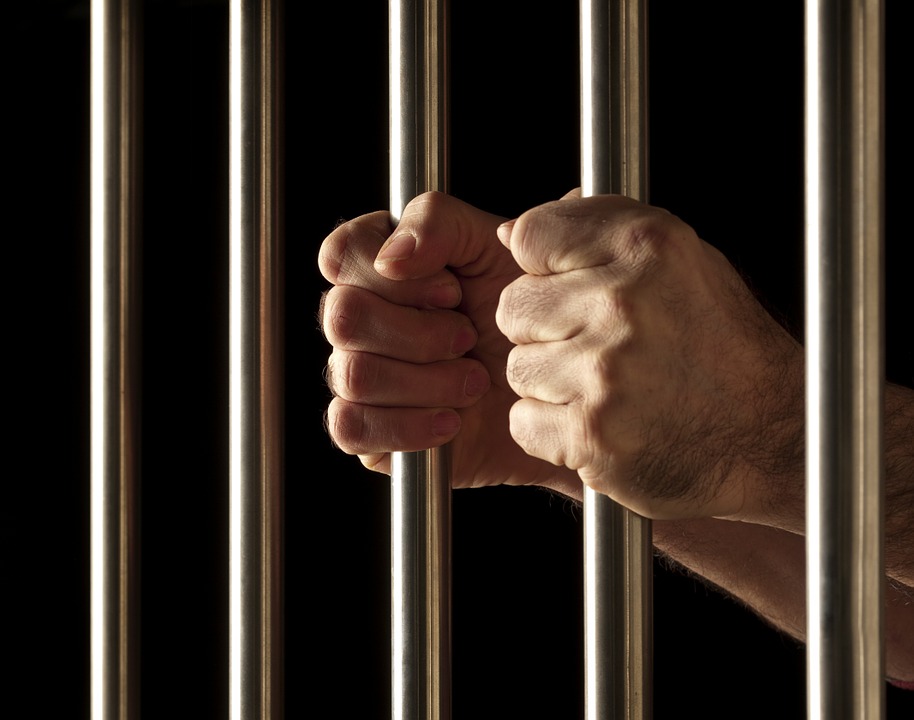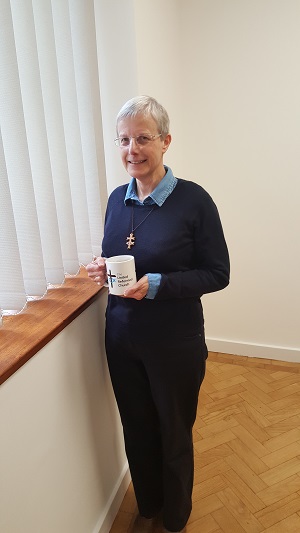 ‘If you don’t believe people can change, what hope is there?’ asks the Revd Hilary Collinson United Reformed Church minister for several churches in the north of England, and prison chaplain for a young offenders institution.
‘If you don’t believe people can change, what hope is there?’ asks the Revd Hilary Collinson United Reformed Church minister for several churches in the north of England, and prison chaplain for a young offenders institution.
From 8 to 14 October Christians are being encouraged to pray for prisoners, victims, their families, and communities as part of Prisons Week.
Prisons Week has been running for more than 40 years; here Hilary highlights the importance of prison chaplaincy and the positive impact it delivers.
Hilary had never set foot in a prison until the day of her interview in 2006.
‘I was looking for a change of direction and was taken by the what that particular prison was trying to achieve,’ she continued.
Since 2013, the minister has been working in a young offenders’ institute in County Durham.
‘I go in as the duty chaplain,’ explains Hilary. ‘By law, there’s three things we have to do in a day. We have to see a prisoner who has come in within the last 24 hours to check their family know where they are, have had a reasonable night and that they understand what some of the processes are going to be for the next part of the induction process including their religious affiliation. Then I go on to the segregation unit where people who have fallen foul of the prison rules are placed and check on their welfare and see that they are ok, and finally I visit people who are on suicide or self-harm watch.’
Hilary says that no one is excluded from the prison chaplaincy service.
‘We see people of all faiths and nationalities. They don’t have to belong to an official religious group. We are there for everybody, including the staff, which is important. Their job is becoming increasing stressful because of lower levels of staff, and an increase of contraband materials especially the drug Spice – a synthetic type of cannabis. This means prisoners may get locked up for longer. Young men especially can be a bit impatient. They’re used to having what they want, and wanting it now.’
But despite the difficulties, Hilary says there are opportunities to help prisoners.
 ‘The men that engage with chaplaincy have an opportunity to explore faith,’ she adds. ‘One of the things I love about it is that I’m asked things that I’m never asked by the people who go to church. The prisoners keep asking questions about the Bible, and what it means to be a Christian. They also cannot understand why people are bothered or interested in them. They have their own issues. They may have been in trouble at school, and the only association they have had with authority has been negative. But with chaplaincy they have people sitting down saying “I’m interested in you”.’
‘The men that engage with chaplaincy have an opportunity to explore faith,’ she adds. ‘One of the things I love about it is that I’m asked things that I’m never asked by the people who go to church. The prisoners keep asking questions about the Bible, and what it means to be a Christian. They also cannot understand why people are bothered or interested in them. They have their own issues. They may have been in trouble at school, and the only association they have had with authority has been negative. But with chaplaincy they have people sitting down saying “I’m interested in you”.’
Over time, Hilary is able to build up a sense of trust with the prisoner.
‘Prison week is important,’ she continues. ‘A lot of people think lock prisoners up and throw away the key but we need to look beyond that. Prisons Week opens a flap on an unknown world. I say a flap because each cell has a flap. If you don’t believe people can change, what hope is there?’
As well as raising awareness about prisoners, Prisons Week also turns the spotlight onto all affected by crime, victims, their communities, and those working within the criminal justice system. It asks us to pray for their needs as well as prisoners.
‘Those of us that are dealing with prisoners can sometimes lose sight that there are victims who need help and support,’ Hillary adds. ‘They mustn’t be forgotten in the justice system but neither can the prisoners’ families. There has to be hope for an individual but also hope for the whole network around the individual.’
Hilary encourages churches to get involved with the Welcome Directory – which helps communities become places where people leaving prison can find support and acceptance.
She continued: ‘The Welcome Directory, along with Prisons Week, is worth exploring further if we believe in a transformative faith.’




